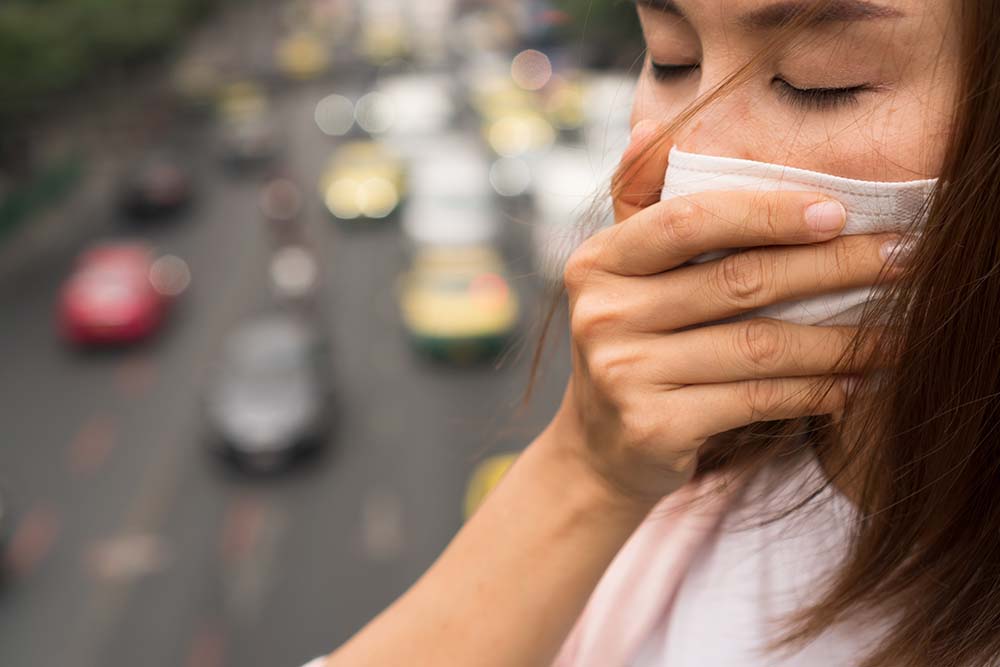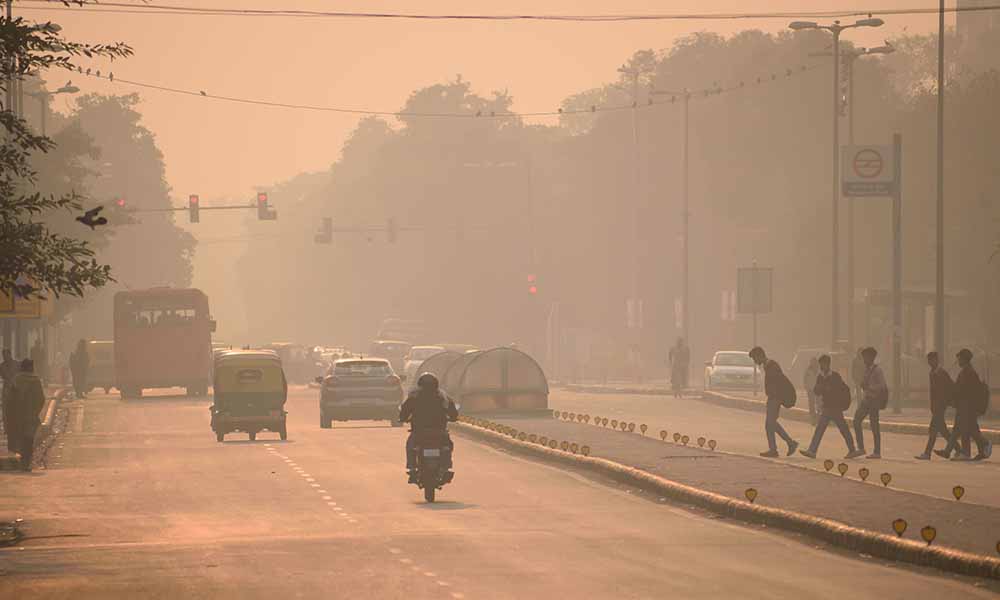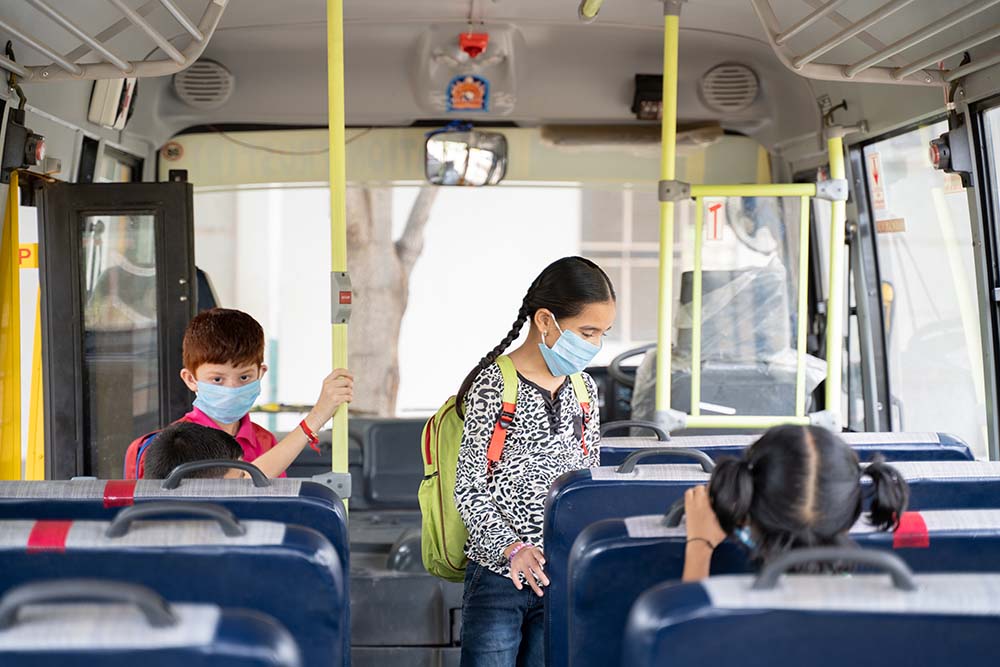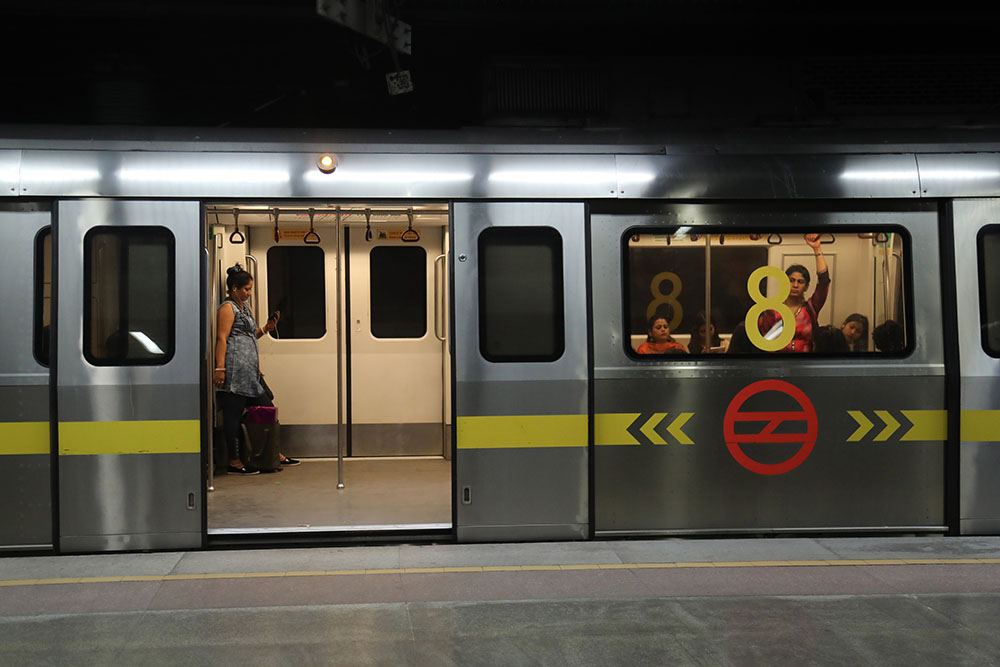Swarupa Salve was pregnant when she suffered an asthma attack while she was stuck in traffic in Delhi on her way home from work. “I was scared, trapped in a whirlwind of dark grey smoke coupled with heat and smog, and had nowhere to go and no one to help me. I passed out and woke up in the hospital. Luckily, my baby and I survived – he is 2 now but has severe respiratory issues. He is always coughing, I can hear him wheezing while he is asleep and all this because pollution is now a part and parcel of life you either live with it or suffer through it.” Shortness of breath, asthma, sneezing, coughing, lunch infections, and constant use of an inhaler or nebulizer that’s standard and a lifestyle for many of us now.

Between 2018-2021, India witnessed the maximum levels of human-induced air pollution, noted a recent 2023 study titled 'Machine learning-based country-level annual air pollutants exploration using Sentinel-5P and Google Earth Engine' published in the journal Nature. This period saw a surge in air pollution owing to industrial power plants, green space dynamics, unplanned urbanisation and development and an increase of transportation, in the country.

For the past century, the car has dominated the urban landscape. Streets have been widened in many cities to accommodate automobiles, and huge amounts of space are given over to parking them. Private vehicles have revolutionised mobility, according to research by C2FO, annual car sales in India are projected to increase from the current 3.5 million to about 10.5 million — a three-times increase — by 2030. While these numbers speak volumes about the country’s spending capacity, this also comes at a greater cost and sacrifice – increasing exposure to vehicular exhaust emissions. According to studies, vehicles annually contribute about 290 gigagrams (Gg) of PM2.5 – this is considered more toxic because of the toxic constituents of its PM2.5 emissions. At the same time, around eight per cent of total greenhouse gas (GHG) emissions in India are from the transport sector, and in Delhi, it exceeds 30 per cent according to an analysis by the Centre for Science and Environment (CSE). The levels of the pollutant PM 2.5 are often well above the World Health Organisation’s recommended level of exposure (often over 5 times higher) and this leads to serious respiratory problems for those exposed to it. As part of a worldwide survey, it was discovered that 21 out of the 30 most polluted cities in the world were in India. And this pushed India’s ranking as a country to 5th place, according to figures published by iqair.com. Over 50 over cent of this pollution comes from factories/industries, followed by 27 per cent from vehicles, 17 per cent from crop burning and 7 per cent from domestic cooking. Vehicular emission is a major cause of air pollution in India and over 2 million Indians lose their life to causes attributed to air pollution.

Globally, the movement to trade private cars in lieu of active transportation such as walking, biking and taking public transportation has been gaining popularity to reduce carbon emissions. India’s goals over the next few years to reduce air pollution include the introduction of over one lakh electrically powered buses across the country and the upgrading of engines using fossil fuels to meet the stringent BS6 standards. Tax relaxations on Electric Vehicles (EVs) ownership with hopes that by 2030, 25 per cent of all privately-owned vehicles on Indian roads will be EVs. Vehicles older than 15 years or that fall below the BS6 emission standards will be banned from city roads. In addition to steps taken by the governments, families are doing their bit, and today a small but growing number of cities are trying to design cars out of the urban landscape altogether. Her Circle spoke to individuals who have taken active steps and given up driving private cars to help the planet heal.

“We live around a super crowded traffic junction in Mumbai and as a family of six, we had two cars and would drive around everywhere. The pandemic hit, and with fewer cars around the area, we realised that the air is cleaner around us, the weather is a lot better, and you could smell the absence of cars too. It's very easy to complain about pollution and not realise that you are a big part of the problem. My company permanently moved to a hybrid model of working and we decided to sell the cars and get one EV. Soon after my husband too opted for remote work and implemented the same in his company to help facilitate the car-free life. Currently, we walk a lot more, take the metro to malls and our kids travel to school in a school bus.”
- Anupama Dhar

“I recently got married and moved in with my wife a few blocks away from where my parents live, and the one possession I left behind was my car. We have been blessed and have had the liberty to be driven around all our lives, but as I grew older and started using the car myself my initial awakening was that we no longer lived in the land of ample parking – parking on the street was a huge pain. Overcrowded sidewalks, double-parked bikes, and autos dodge you as you try to wiggle your way into a one-way street to park. I soon found myself walking to the nearest local grocer rather than driving to a departmental store. I started picking movie theatres or eateries that were just a metro/rickshaw ride away. As fuel prices increased, and so did our rent, we realised a car is no longer a necessity.”
- Abhinav Misra

“As soon as we leave home, it’s an adventure and learning for my kid. I grew up in Bengaluru, and after getting married, I moved to Mumbai. Initially, I longed for a car because the city is intimidating, and public transport scared me but since we had just relocated we didn’t buy a vehicle immediately. I soon got pregnant and, we decided to buy our own place in a neighbourhood that was family-friendly, had a school that was a 10-min walk away and has easy access to public transportation. My husband took the local train to work, I was commuting via the metro and eventually, we did the math and decided it was preposterous paying thousands a month on a vehicle we wouldn’t often use – there are car services for when you actually need to be driven somewhere. Yes, having a car does have its perks but not at the cost of the environment. If and when we do decide to buy it will definitely be an EV.”
- Taruni Bhargava

“They are high maintenance, they are expensive, as well as a major hazard to the environment. As per government data released in 2018, accidents every year, approximately 1.5 lakh people die on Indian roads, that is 422 deaths every day and 18 deaths every hour, and an estimated 16.7 lakh more from long-term exposure to air pollution. I live with my partner and we have collectively decided to go car-free, we commute by public transport, we buy local, and we contain our international travels only when unavoidable. We love exploring the lengths of India by train. It’s a journey and we love it.”
- Sahil Sharman Mahadevan